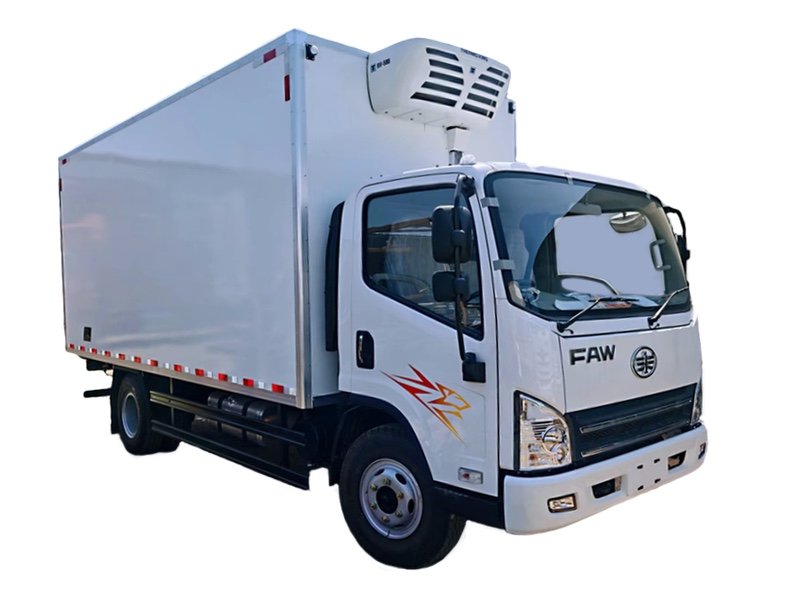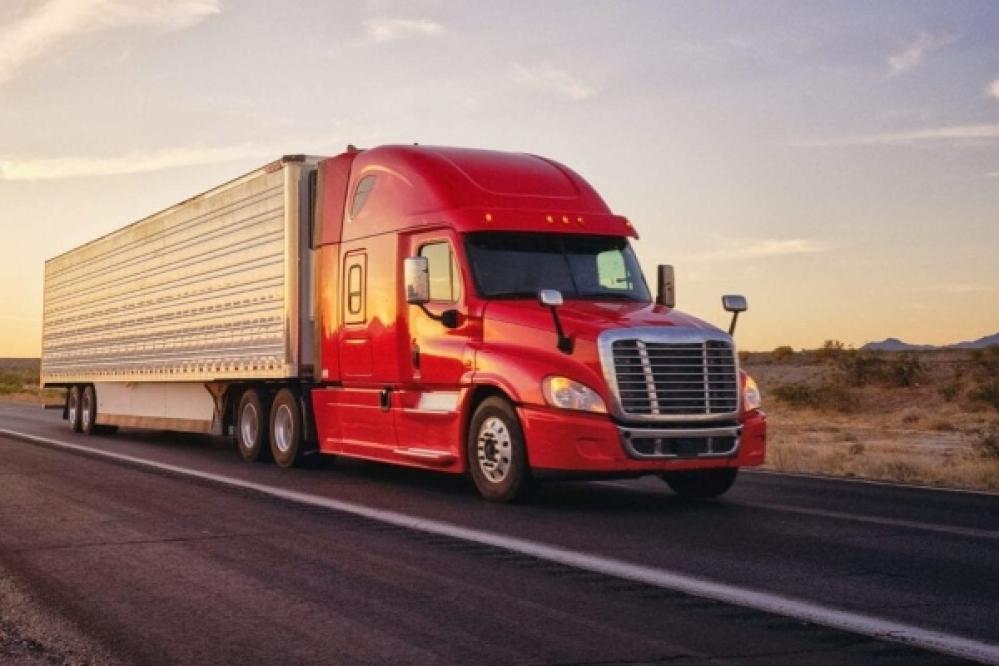Refrigerated Transportation Thermo King: The Ultimate Service
Refrigerated Transportation Thermo King: The Ultimate Service
Blog Article
Leading Advancements in Transportation Refrigeration: Enhancing Performance and Safety
The landscape of transportation refrigeration is undertaking substantial makeover, driven by developments intended at enhancing both effectiveness and safety and security. As these innovations continue to evolve, it is essential to discover their implications on functional methods and governing conformity, motivating a better assessment of exactly how they reshape the future of transportation refrigeration.
Smart Temperature Level Keeping Track Of Systems
In the realm of transportation refrigeration, clever temperature level tracking systems have emerged as a crucial advancement for guaranteeing the honesty of temperature-sensitive products. These advanced systems leverage Internet of Things (IoT) modern technology to give real-time data on temperature variations, allowing drivers to keep optimal conditions throughout the supply chain. By continuously tracking the temperature level of refrigerated containers and automobiles, firms can swiftly identify variances that might compromise product high quality.

Furthermore, clever surveillance systems commonly include automated signals and alerts, allowing stakeholders to react quickly to any type of potential problems. This positive approach not just lessens the danger of perishing yet also boosts compliance with regulative criteria governing food security and pharmaceutical transport.
The combination of data analytics within these systems also assists in predictive maintenance, assisting drivers to foresee possible equipment failures before they occur. This ability minimizes downtime and enhances functional performance, ultimately causing cost savings.
Eco-Friendly Refrigerants
Smart temperature monitoring systems play an important role in keeping item quality, yet the efficiency of transportation refrigeration additionally depends upon the choice of refrigerants made use of. As environmental worries rise, the shift towards environmentally friendly cooling agents has actually come to be important. Traditional refrigerants, such as hydrofluorocarbons (HFCs), are well-known for their high International Warming Prospective (GWP), adding dramatically to environment change. On the other hand, arising options like hydrocarbon-based cooling agents and hydrofluoroolefins (HFOs) existing lower GWP choices, using both effectiveness and sustainability.
These environment-friendly refrigerants not only minimize ecological influence yet also align with international policies targeted at eliminating hazardous compounds. Their fostering can bring about boosted power effectiveness, eventually reducing operating expenses for transportation refrigeration systems. In addition, making use of all-natural refrigerants, such as ammonia and carbon dioxide, has actually obtained traction because of their exceptional thermodynamic residential properties and lower ecological impact.
Purchasing eco-friendly refrigerants is not just a governing conformity measure; it represents a calculated decision that improves brand track record and fosters consumer loyalty. thermo king transport refrigeration. By focusing on sustainable methods, business can add to a greener future while guaranteeing the stability of transported items
Advanced Insulation Products
Making use of innovative insulation materials is vital for optimizing transportation refrigeration systems, as they dramatically boost power effectiveness and maintain constant temperature level control. Traditional insulation methods often drop brief in avoiding thermal transfer, leading to enhanced power usage and changing temperatures within refrigerated areas.
Emerging products such as vacuum cleaner protected panels (VIPs) and aerogels supply remarkable thermal resistance, permitting thinner accounts without endangering efficiency. VIPs, for example, use a vacuum layer to lessen convective and conductive warmth transfer, making them optimal for space-constrained applications. Aerogels, known for their porous and light-weight framework, give outstanding insulation while substantially decreasing general system weight.
In addition, incorporating stage adjustment products (PCMs) into insulation systems can additionally stabilize temperatures during transit. These products absorb and launch thermal energy, go to website effectively buffering against exterior temperature level variations.
The combination of these advanced insulation products not only minimizes the functional prices connected with power intake however additionally extends the service life of temperature-sensitive items. As the transport refrigeration industry proceeds to progress, the fostering of cutting-edge insulation modern technologies will certainly be essential in improving both efficiency and security in cooled transportation.
Automated Course Optimization
The performance of transport refrigeration systems is substantially boosted with automated course optimization, which leverages real-time information and sophisticated formulas to identify one of the most reliable paths for shipment. By assessing different aspects such as website traffic patterns, climate condition, and distribution home windows, these systems can dramatically reduce travel time and fuel consumption.
Automated course optimization decreases human mistake and subjective decision-making, which can bring about ineffectiveness. This modern technology allows fleet supervisors to allocate sources a lot more effectively, making certain that refrigerated items keep their needed temperature level throughout the journey. By optimizing routes, business can likewise boost client complete Clicking Here satisfaction through timely shipments.
Additionally, automated systems can adapt to unanticipated conditions, such as road closures or abrupt web traffic spikes, permitting dynamic rerouting. This flexibility not only safeguards the honesty of temperature-sensitive items however likewise adds to total functional performance.
Carrying out automated course optimization can lead to substantial price financial savings while decreasing the carbon impact connected with transportation. As companies significantly prioritize sustainability, this advancement attracts attention as a vital component in contemporary transport refrigeration, aligning functional goals with ecological responsibility. Ultimately, automated route optimization stands for a considerable development in the quest for effectiveness and safety in transport refrigeration.

Real-Time Data Analytics
Automated path optimization considerably gain from the combination of real-time data analytics, which gives critical understandings right into the efficiency of transportation refrigeration systems. By making use of real-time data, transport drivers can check temperature variations and equipment performance, guaranteeing that disposable products are maintained within needed parameters throughout transportation. This proactive technique not just enhances the high quality of the transferred items yet additionally reduces the threat of spoilage and loss.

In enhancement to improving effectiveness, real-time analytics improves safety by making sure conformity with regulatory requirements for temperature control. This not view website just safeguards public wellness yet likewise fortifies a company's track record - thermo king truck refrigeration units. As the transportation refrigeration industry develops, the combination of real-time data analytics emerges as a cornerstone for driving advancement, sustainability, and operational quality
Verdict
In conclusion, the developments in transport refrigeration considerably improve both effectiveness and safety within the industry. Collectively, these developments represent a crucial evolution in transport refrigeration, guaranteeing conformity with regulatory criteria and advertising a greener future.
The landscape of transport refrigeration is going through considerable improvement, driven by developments aimed at boosting both effectiveness and security.Smart temperature tracking systems play an important function in preserving product top quality, however the effectiveness of transportation refrigeration likewise pivots on the choice of cooling agents used. Their adoption can lead to enhanced power effectiveness, inevitably minimizing operating expenses for transport refrigeration systems. Ultimately, automated course optimization represents a considerable improvement in the mission for performance and safety and security in transport refrigeration.
In verdict, the innovations in transportation refrigeration significantly improve both effectiveness and security within the industry.
Report this page